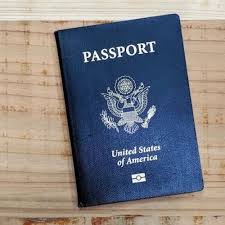Introduction
In a nation that proudly proclaims gender equality in its Constitution, the continued existence of bureaucratic norms requiring a married woman to obtain her husband’s consent or documents to apply for something as basic as a passport is a stark reminder of the deep-seated patriarchy that still governs many aspects of a woman’s life. While these regulations are not always codified in law, their existence in practice reflects an indirect form of male supremacy—one that is institutionalized, normalized, and often unquestioned.
The Bureaucratic Bias
For decades, Indian women applying for passports have faced a peculiar obstacle: if they are married, they are often required to provide details and supporting documents related to their husbands, including marriage certificates or spousal consent, even when such requirements are not explicitly mandated by law. On the other hand, unmarried women or widows face fewer such hurdles, and men are rarely, if ever, asked for spousal documents.
This inconsistency exposes a clear gender bias, suggesting that a married woman’s identity and rights are inseparable from her husband’s, whereas a man remains autonomous regardless of his marital status.
This practice sends a regressive and dangerous message: that a woman, once married, ceases to be an individual in the eyes of the state. She becomes a dependent, a legal appendage of her husband. Her ability to travel, to represent herself, or to identify as an independent citizen is conditioned by her husband’s presence, documentation, or consent.
This notion is not only outdated but in direct conflict with Article 14 (Right to Equality) and Article 21 (Right to Life and Personal Liberty) of the Indian Constitution.
Technically, the Passport Rules, 1980, and subsequent reforms do not explicitly mandate a husband’s consent or marriage certificate for passport issuance. In fact, reforms in recent years—particularly those announced by the Ministry of External Affairs in 2017—sought to ease documentation requirements. These include accepting self-declaration forms in lieu of marriage certificates and not requiring the father’s or husband’s name for certain applications.
However, ground-level implementation often tells a different story. Passport Seva Kendras (PSKs) and regional passport offices sometimes enforce rules arbitrarily. Women have reported being asked to submit marriage certificates or even affidavits signed by their husbands—especially when changing their surnames or marital status. This lack of uniformity perpetuates confusion and reinforces patriarchal control under the guise of administrative process.
The Case for Reform
Real reform must go beyond policy announcements. It must involve:
- Uniform Enforcement: Ensuring all passport offices follow a standard, gender-neutral application process.
- Awareness Campaigns: Educating women on their rights and the actual documentation required for passports.
- Accountability Mechanisms: Penalizing officials or offices that impose unlawful or outdated requirements.
- Legal Remedies: Providing quick redressal options for women denied passports due to arbitrary spousal requirements.
A Matter of Dignity and Equality
In a modern democracy, a woman’s freedom should not hinge on her husband’s presence, approval, or paperwork. The ability to hold a passport is not a privilege—it is a fundamental right linked to personal liberty, global mobility, and individual identity.
By continuing to demand spousal consent, Indian institutions inadvertently reinforce patriarchal norms and deny women their full citizenship. True equality will be achieved not just when laws are passed, but when procedures respect and reflect those laws in everyday governance.
Conclusion
“Stamped by the Husband” is not merely a metaphor—it is a reality for many Indian women. As long as bureaucratic systems continue to treat married women as extensions of their spouses, indirect male supremacy will persist. It is time we recognize and dismantle these invisible chains and ensure that every woman, married or not, can claim her identity and exercise her rights without seeking permission.
Contributed by: Aishwarya Sharma (Intern)

